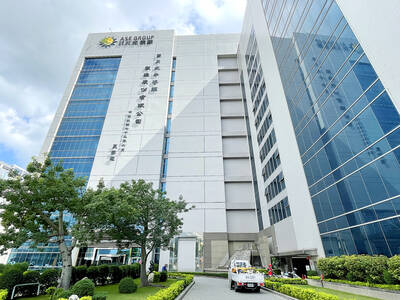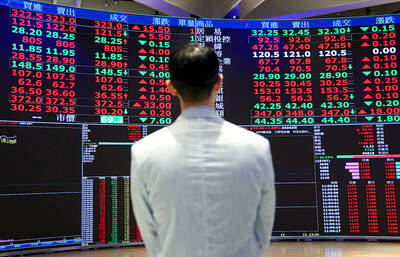Wall Street has regained some of its upward momentum as investors look past the latest economic and corporate woes and pin their hopes on an easier money policy from the Federal Reserve.
Analysts say the snapback in the past week, coming on the heels of a big drop in the prior week, has been based on hopes of a rate cut on Wednesday from the US central bank and that the market remains fragile.
In the week to Friday, the Dow Jones Industrial Average gained 2.1 percent to 13,806.70, rebounding from a four percent slide the prior week.
The broad market Standard & Poor's 500 index advanced 2.31 percent to 1,535.28 and the tech-heavy NASDAQ rallied 2.9 percent to 2,804.19.
The past week was marked by signs of more turmoil in housing, with data showing a flood of unsold properties growing and existing home sales falling to fresh lows. Further troubles emerged in the financial sector with Merrill Lynch writing off some eight billion dollars in soured investments.
The market also shook off record high oil prices and fresh lows for the dollar against the euro.
But analysts say the market is looking ahead to a more friendly policy stance from the central bank, whose Federal Open Market Committee (FOMC) meets on Tuesday and Wednesday.
The Fed last month lowered its base rate by half a percentage point to 4.75 percent to ease housing and credit market stress and many market watchers expect a further reduction.
"Clearly the market will focus on Wednesday's FOMC rate and credit policy decision," said Gregory Drahuschak at Janney Montgomery Scott.
"Increasingly it has become obvious that the market wants another rate cut. The ideal that should satisfy the market is a 25 basis-point cut. More than this could generate worries that the economy is getting too weak," Drahuschak said.
Lehman Brothers economist Ethan Harris said that the Fed needed to keep cutting rates in the face of a deepening housing crisis that threatens to drag the entire economy down.
Harris predicts a cut of 25 basis points and three more cuts in the coming months to bring the federal funds rate down from the current 4.75 percent to 3.75 percent.
Bonds held firm amid the uncertain economic outlook. The yield on the 10-year Treasury bond eased to 4.389 percent from 4.401 percent a week earlier, and that on the 30-year Treasury dipped to 6.683 percent from 4.689 percent.

EXPANSION: The investment came as ASE in July told investors it would accelerate capacity growth to mitigate supply issues, and would boost spending by 16 percent ASE Technology Holding Co (ASE, 日月光投控), the world’s biggest chip assembly and testing service provider, yesterday said it is investing NT$17.6 billion (US$578.6 million) to build a new advanced chip packaging facility in Kaohsiung to cope with fast-growing demand from artificial intelligence (AI), high-performance-computing (HPC) and automotive applications. The new fab, called K18B, is to commence operation in the first quarter of 2028, offering chip-on-wafer-on-substrate (CoWoS) chip packaging and final testing services, ASE said in a statement. The fab is to create 2,000 new jobs upon its completion, ASE said. A wide spectrum of system-level chip packaging technologies would be available at

Taiwan’s foreign exchange reserves hit a record high at the end of last month, surpassing the US$600 billion mark for the first time, the central bank said yesterday. Last month, the country’s foreign exchange reserves rose US$5.51 billion from a month earlier to reach US$602.94 billion due to an increase in returns from the central bank’s portfolio management, the movement of other foreign currencies in the portfolio against the US dollar and the bank’s efforts to smooth the volatility of the New Taiwan dollar. Department of Foreign Exchange Director-General Eugene Tsai (蔡炯民)said a rate cut cycle launched by the US Federal Reserve

HEAVYWEIGHT: The TAIEX ended up 382.67 points, with about 280 of those points contributed by TSMC shares alone, which rose 2.56 percent to close at NT$1,400 Shares in Taiwan broke records at the end of yesterday’s session after contract chipmaker Taiwan Semiconductor Manufacturing Co (TSMC, 台積電) hit a fresh closing-high amid enthusiasm toward artificial intelligence (AI) development, dealers said. The TAIEX ended up 382.67 points, or 1.45 percent, at the day’s high of 26,761.06. Turnover totaled NT$463.09 billion (US$15.22 billion). “The local main board has repeatedly hit new closing highs in the past few sessions as investors continued to embrace high hopes about AI applications, taking cues from a strong showing in shares of US-based AI chip designer Nvidia Corp,” Hua Nan Securities Co (華南永昌證券) analyst Kevin Su

Nvidia Corp’s major server production partner Hon Hai Precision Industry Co (鴻海精密) reported 10.99 percent year-on-year growth in quarterly sales, signaling healthy demand for artificial intelligence (AI) infrastructure. Revenue totaled NT$2.06 trillion (US$67.72 billion) in the last quarter, in line with analysts’ projections, a company statement said. On a quarterly basis, revenue was up 14.47 percent. Hon Hai’s businesses cover four primary product segments: cloud and networking, smart consumer electronics, computing, and components and other products. Last quarter, “cloud and networking products delivered strong growth, components and other products demonstrated significant growth, while smart consumer electronics and computing products slightly declined,” compared with the